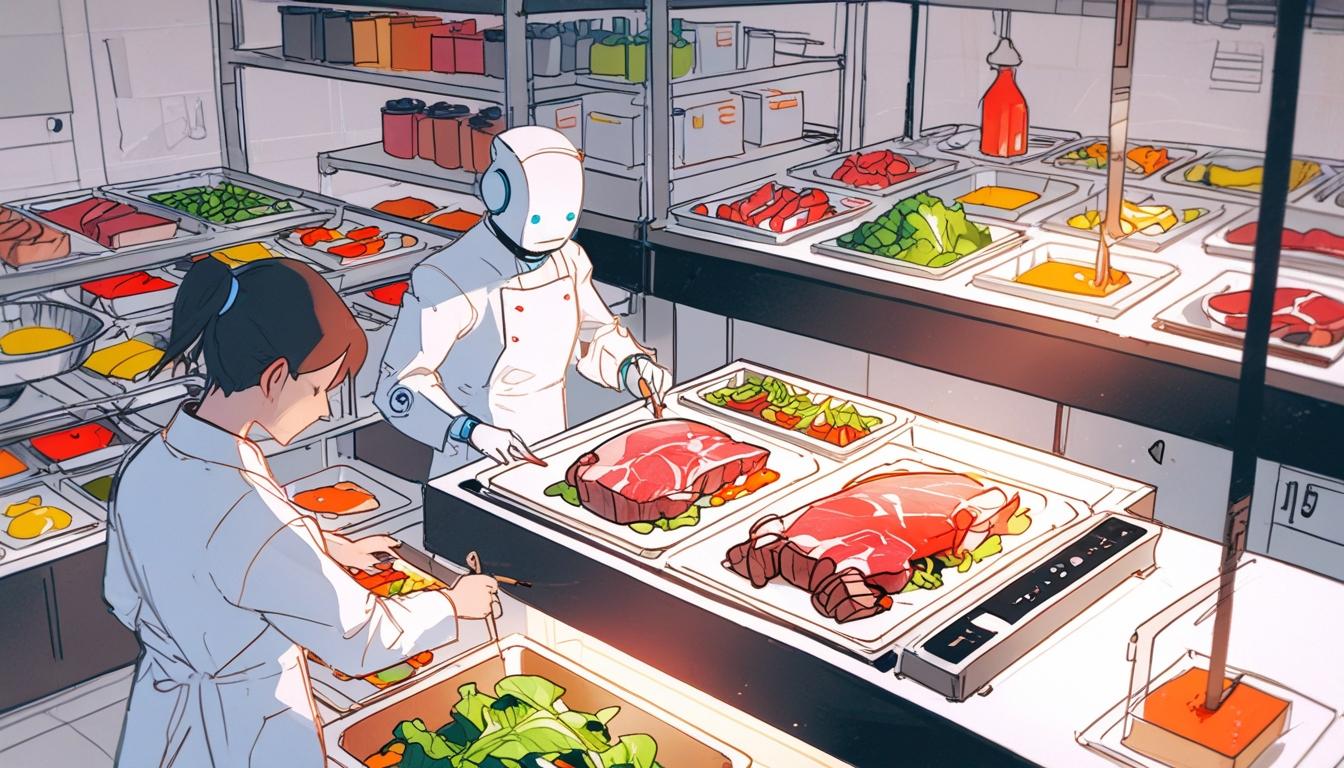Christian Nagel, Co-Founder and Partner at Earlybird Venture Capital, has detailed the transformative impact of artificial intelligence (AI) and emerging food technologies on the future of the food sector in a recent interview with Green Queen. Nagel emphasises the growing role of AI in creating innovative food tech solutions, highlighting how generative models enable hyper-personalised nutrition through biomarkers and real-time data, as well as speeding up synthetic biology in the production of animal-free proteins.
Nagel explains that AI-driven advancements extend into robotic kitchens, which are evolving from mere automation to culinary creativity, and supply chains enhanced by AI's predictive capabilities aimed at minimising food waste. Together, these technologies are contributing to more efficient, sustainable, and tailored food systems.
Looking ahead to 2025, Nagel identifies three key verticals where Earlybird is actively investing. These include fermentation-based protein platforms, clean-label functional ingredients, and technologies that improve supply chain resilience. He notes that the accelerated design of microorganisms capable of producing novel proteins, vitamins, and fats—often mimicking complex animal products—is a significant driver of innovation in these areas.
Reflecting on the food tech sector’s recent achievements, Nagel spotlights the commercialisation of cultivated meat products as a major milestone. He cites the regulatory approvals and market launches in the US by companies such as Upside Foods, Eat Just’s cultivated chicken, and Mission Barns’ cultivated pork, along with Singapore’s approval of Eat Just’s cultivated chicken. Additionally, Earlybird’s portfolio company, Gourmey, is undergoing regulatory approval for cultivated fois gras across seven countries, marking a considerable technological and regulatory progression.
When asked about improvements needed in plant-based meat, Nagel highlights enhancing taste and texture to more closely replicate conventional meat, with a focus on juiciness, flavour, and cooking experience. He points to companies like Nosh.bio, whose Koji Chunks, free from additives, have successfully moved from laboratory development to mainstream retail, demonstrating that plant-based products can meet consumer expectations of taste, scalability, and appeal.
Regarding the qualities he looks for in founders, Nagel values vision and resilience, seeking entrepreneurs who have the potential to disrupt and redefine industries. He also mentions two of Earlybird’s most notable future food investments, Gourmey and Nosh.bio, which embody distinct yet promising approaches: Gourmey concentrates on high-end cultivated meats with a culinary excellence focus, whereas Nosh.bio develops foundational fermentation platforms applicable across food categories.
Addressing common misconceptions about venture capital (VC), Nagel remarks that VC is often misunderstood as a pursuit of fads, whereas his extensive experience reveals it to be a long-term commitment involving partnership and support through periods of uncertainty. Earlybird emphasises engaging deeply with startups from the earliest stages and maintaining this engagement through their developmental journey.
Nagel also shares personal reflections on his culinary experiences with future foods, mentioning he recently enjoyed fois gras from Gourmey in Paris. He reveals that this cultivated meat experience was judged superior to the original by Rasmus Munk, Chef of the Year 2024 and a member of Gourmey’s culinary board. Additionally, he names Cookies Cream in Berlin, a climate-forward restaurant that has served Nosh.bio products, as his favourite climate-conscious dining venue despite it not being vegan.
Ultimately, Nagel’s motivation lies in the excitement and significance of being an early believer in pioneering founders, supporting them through challenges and celebrating their eventual successes.
The Green Queen is reporting on these insights and the evolving landscape of food technology investment, illustrating the interplay of AI, fermentation, cultivated meats, and visionary entrepreneurship shaping the future of food.
Source: Noah Wire Services
